Test lab BOCOM: What we’ve learned (2)
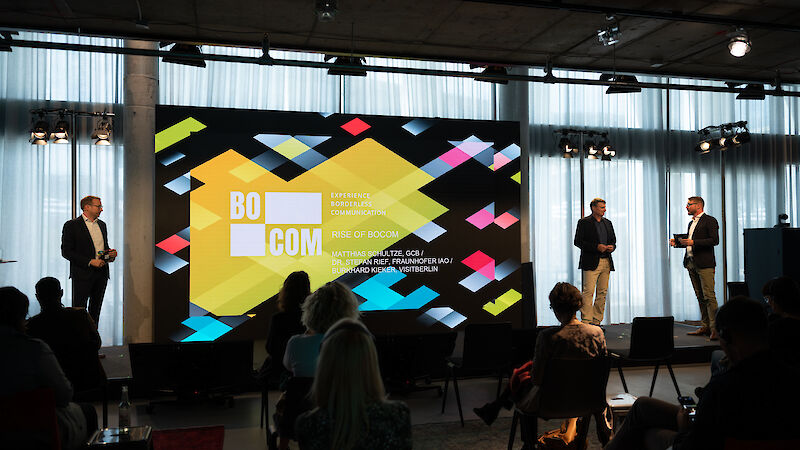 © GCB / Luis Bompastor
© GCB / Luis Bompastor
Since March 2020, the event industry has been all about the Covid-19 pandemic and, no doubt, this unprecedented global situation has brought noticeable change for event professionals. However, even prior to that, there have been megatrends with far-reaching consequences for our sector, with sustainability being one of the most prominent ones, playing an increasingly central role in the organisation of events. How do we in the event industry deal with the challenge of climate change? How do we create events that are as environmentally, socially and economically sustainable as possible?
Last September, when the GCB German Convention Bureau, together with partners, organised the "BOCOM - Experience Borderless Communication" congress in a hybrid, multi-site and international setting to test what events of the future might look like, the event's sustainability performance was therefore put into the focus and analysed alongside success factors for attendees. The results of our surveys show that hybrid and multi-site formats are a good solution for sustainable events that guarantee very good knowledge transfer in particular.
BOCOM's environmental footprint - the details
As part of the analysis, which was funded by the German Federal Environmental Foundation, the BOCOM congress with its various elements (central event hub in Berlin, decentralised hubs in Europe, virtual participants) was compared to a modelled, conventional event, which assumed a purely physical event environment in Berlin. This modelled event produced a total of 19 tonnes of CO2 equivalents (CO2e), while the hybrid BOCOM congress at its various physical locations and with virtual participants produced 12 tonnes. At just over 78%, the majority of the event's total emissions were caused by the central hub (115 participants) in Berlin. The three alternative venues Essen, Amsterdam and Vienna (77 participants) were responsible for a total of 18.97% of the total emissions. For the virtual participation with 240 participants, 3.88% were recorded.
Emissions per participant
In addition to the absolute emissions per event format, the results per participant also come up with a positive balance for the hybrid organisation: While the total emissions per participant for the modelled conventional event amount to about 88 kg CO2e, BOCOM participants only account for about 28 kg CO2e each. This means that in the comparison of the respective event formats, BOCOM brought about a reduction of a good 60 kg CO2e per participant (68%).
Analysis of emission drivers
Where should organisers focus their efforts in order to reduce the environmental footprint of their events? The analysis very clearly - and unsurprisingly - shows that transportation and overnight stays are the biggest emission drivers. Transportation, with 7.3 and 13 tonnes of CO2e respectively, accounts for the biggest portion of emissions of both the BOCOM congress and the modelled event in Berlin. Overnight stays follow in second place with 2.1 tonnes for BOCOM and 3.6 tonnes CO2e for the face-to-face modelled event in Berlin. Our hybrid event thus reduces the environmental impact for both aspects.
Conclusion: Sensible combination of sustainability and event objectives is key
Comparing the two event formats, i.e., multi-site set-up vs. at one single physical location, shows that a decentralised and digital implementation can significantly reduce greenhouse gas emissions, with particularly positive effects on transportation and overnight stays, which otherwise tend to be emission-intensive elements due to participants having to travel physically and then stay in one place in the case of purely analogue events. Our analysis also reveals that energy consumption (a total of 0.39 tonnes of CO2e) increases only slightly for the hybrid event organisation, meaning that the necessary extensive use of technology does not, as might have been expected, considerably increase energy consumption. Hybrid events thus enable an enormous increase in reach through virtual participation with only comparatively low additional energy requirements.
However, if you want to organise successful events that inspire all attendees, an isolated look at ecological sustainability alone is not enough. The BOCOM-specific analysis of success factors for events has shown that pure knowledge transfer also works well in a virtual environment and thus in a hybrid event format. This means that organising more sustainable events, as can be achieved with hybrid formats, does not stand in the way of successful meetings and conferences from the perspective of knowledge transfer. However, as our analysis has also confirmed, networking as a crucial element of events and the positive disruption of everyday life still work better in a physical environment. Hence, organisers need to carefully balance the principle of sustainability with their respective event objectives. At the same time, when networking and interaction are key goals, they can influence how sustainable their face-to-face events are by thoroughly reviewing the energy efficiency of venues and event partners.
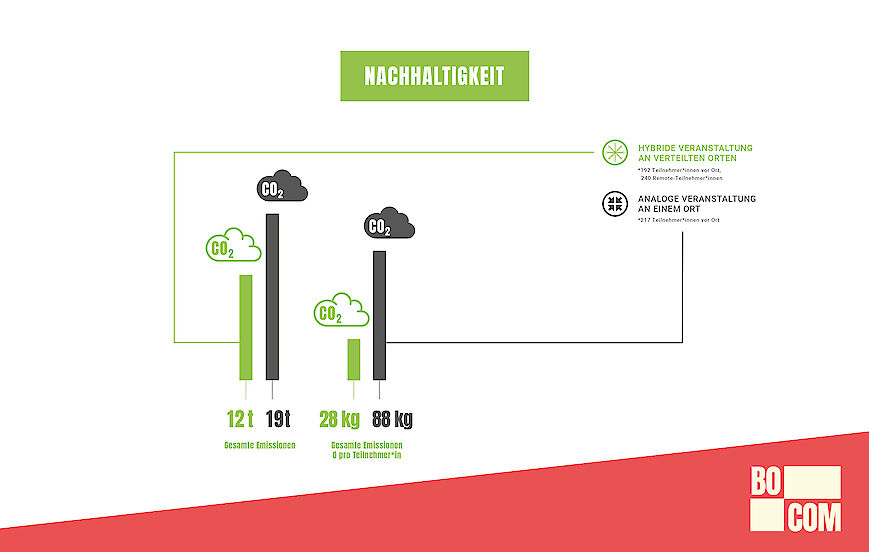
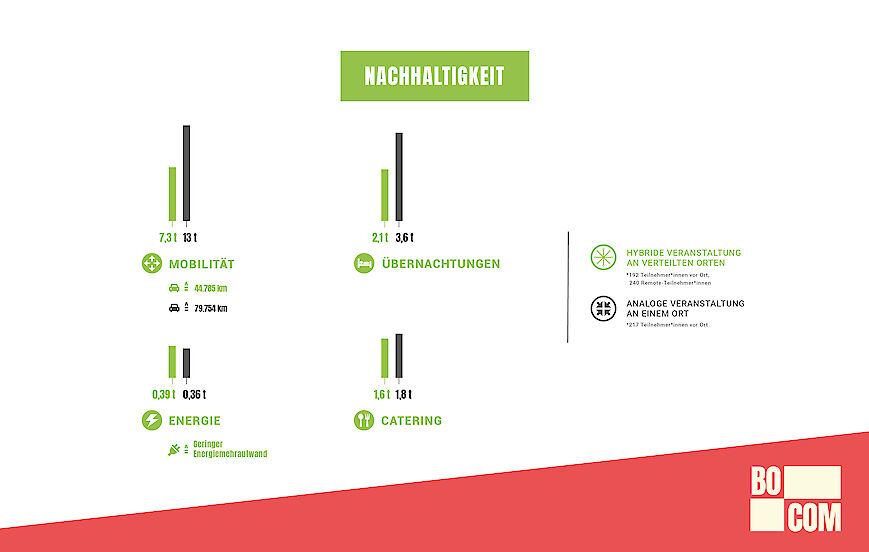
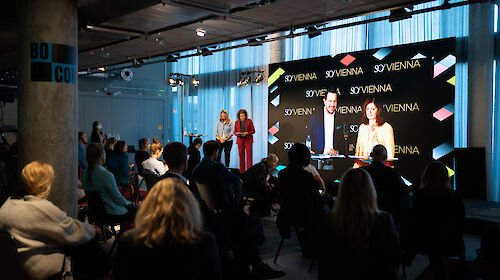 ©
©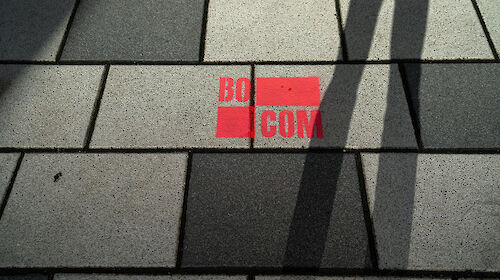 ©
©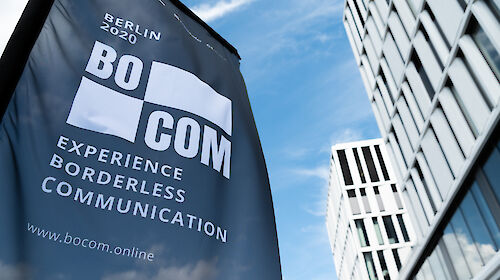 ©
©